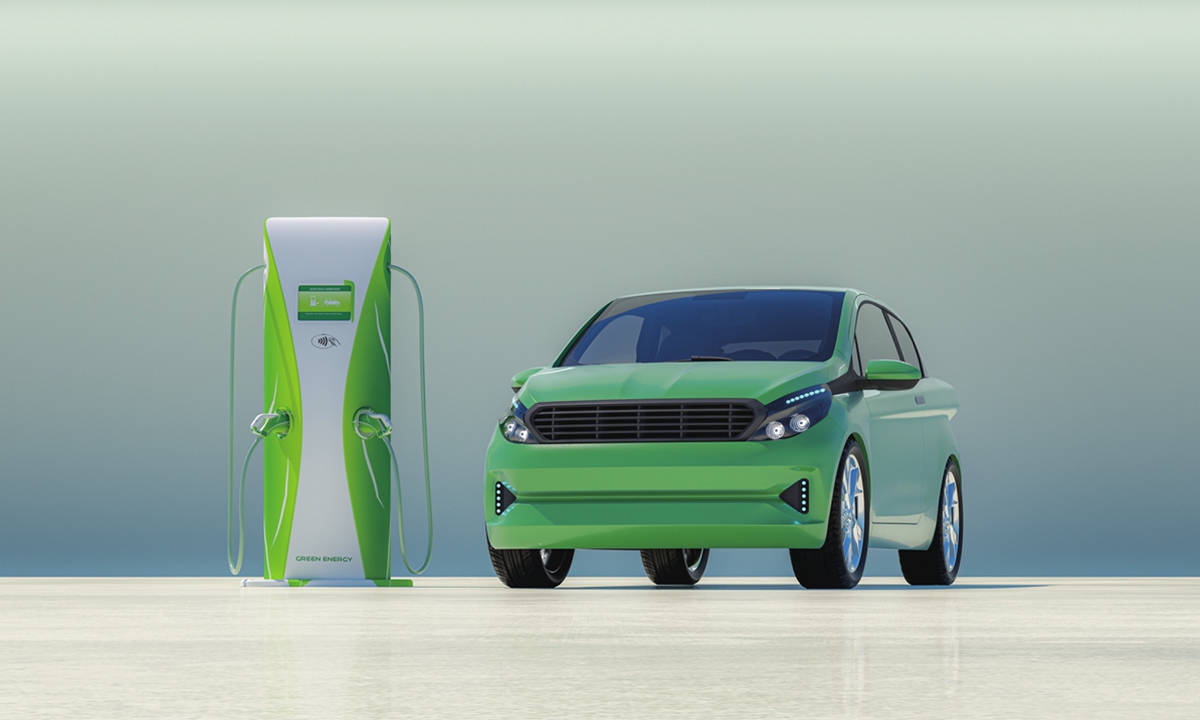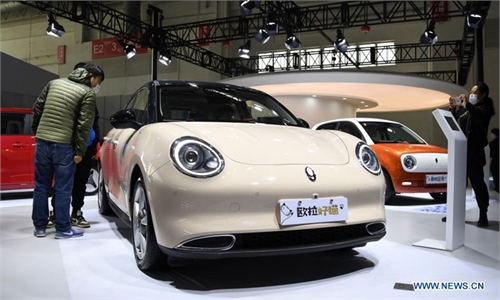China's EV strength wins global recognition with Volkswagen-XPeng deal fully executed

Photo: NEV
For more than four decades, China, the world's largest automobile market now, has been striving to catch up with the West in both auto engineering and manufacturing. And, the country is constantly building up strengthen in greener battery-powered vehicles.
It is a fact many traditional Chinese automakers still could not make internal combustion engine for gasoline-powered vehicles as good as their Western counterparts. However in the new turf of electric vehicles (EVs), China has been expanding its power, gaining an advantage in the world.
XPeng, a rapidly rising Chinese smart EV maker and German auto giant Volkswagen Group announced on Wednesday that the two companies have entered into a framework agreement on strategic technical collaboration and a stock purchase deal for owning a strategic minority investment by Volkswagen in XPeng.
Volkswagen will invest approximately $700 million in XPeng via way of capital injection and ultimately will hold up to 4.99 percent of the company's shares.
EVs are trending
The initial stage of the cooperation shall provide for the joint development of two Volkswagen EV models for the mid-size segment in the Chinese market, by leveraging the company's core competency and XPeng's G9 platform and advanced driver assistance system (ADAS) software solutions.
The China-specific battery-fired vehicles will supplement the German automaker's MEB product portfolio which will be rolled out in 2026 in China, Volkswagen said in a press release.
Furthermore, the two parties will explore additional potential strategic cooperation in a number of automotive areas, including collaboration on future EV platforms, software development and the supply chains.
"Volkswagen and XPeng each bring in highly complementary strengths into this long-term strategic partnership. We will share smart EV technologies and world-class design and engineering capability with each other and learn from each other," said He Xiaopeng, chairman and CEO of XPeng.
Commenting on the partnership, Ralf Brandstaetter, chairman and CEO of Volkswagen China, noted that local partnerships are "an important building block in the Volkswagen Group's 'in China for China' strategy. We are now accelerating the expansion of our local electric portfolio and at the same time preparing for the next innovation step."
The cooperation could bring more opportunities for XPeng in tapping into overseas markets riding on Volkswagen's advantage while the deal has proved that Chinese mainland automakers have won the recognition of global brands and capital, Cui Dongshu, secretary general of China Passenger Car Association (CPCA), told the Global Times.
The Guangzhou-based automaker said earlier this year that its G9 sport-utility vehicle (SUV) and new P7 sports sedan would be available for order in European markets including Denmark, Norway, the Netherlands and Sweden. XPeng started exporting its G3 SUV to Norway in December 2020.
Domestically, XPeng's shipment is, however, unsatisfying with sales down by 40 percent in the first half of the year. But with the delivery of its new G6 model this month, the EV maker said it will witness a sales turnaround in the second half of the year.
While for Volkswagen, it needs to regain luster by launching a product that can win the mass market as it did in the gasoline car-only period in the Chinese market. To change the status quo, the giant German carmaker has to ramp up efforts in improving in-car technologies and software to make them more suitable for Chinese customers, an auto industry insider, who asked to remain anonymous, told the Global Times.
Heating competition
Despite the shipment of Volkswagen's new-energy vehicles increased by 4.8 percent year-on-year to 89,700 units in the first half of the year, it still lags far behind than Chinese domestic automaker BYD and the US rival Tesla, the top two EV makers in the world.
In the first half of the year, BYD's NEV sales stood at 1.25 million units, up 95.78 percent year-on-year. Tesla sold 93,680 China-made EVs in June alone, up 19 percent from the year before, the highest delivery month so far this year, data from the CPCA showed.
NEVs include pure EV, plug-in hybrid EVs and fuel cell EVs.
The teaming-up between Volkswagen and XPeng has the potential to set a precedent for more Western automakers, who are forging ahead with their local electrification strategy in China, by seeking partnership with their Chinese counterparts that have EV manufacturing expertise. Meanwhile they can offer to contribute their global influence accumulated in the auto sector such as a comprehensive distribution chain, industry observers and research institutions said.
The milestone event is a miniature of China's rising EV industry and its representative firms which are gradually shifting the global auto landscape.
Technology exporter
China's auto industry has greatly evolved and improved from "exchanging market for technology" in the past to the current "exchanging technology for a bigger market". In the meantime, Chinese auto firms have also transformed from a technology importer to become a leading technology exporter, Ping An Securities said in a recent analysis note.
China has been on a fast lane in EV manufacturing during recent years in the world, thanks to the sector's growing sales both at home and abroad, but also to the sector's owning world-advanced technologies and a complete supply chain, Chinese industry analysts said. The fact that a German giant carmaker, like Volkswagen, is forming a partnership and become a stockholder in Xpeng will greatly bolster Chinese carmakers' morale, they said.
In terms of EV manufacturing, overseas brands are far from reaching the leading level they hold for gasoline-fired vehicles, resulting in Chinese brands gaining an upper-hand in developing new technologies, and that's the key for China's rise in this new field, according to Cui.
Electric motors, battery making and battery management system are generally deemed as three key components for the electric vehicle. Now, China has a stellar performance in all of the three segments, Zhang Xiang, visiting professor with the Engineering Department of Huanghe Science and Technology University, told the Global Times.
For example, China's battery giant CATL and BYD have continued to dominate the global batteries production in the first five months of the year, accounting for a 36.3 percent and 16.1 percent of the global market, respectively, latest data from South Korean market research firm SNE Research showed.
"Besides the hardware, Chinese firms have gained edge in the smart technologies such as ADAS and over-the-air software systems," Zhang said.
In the first half of the year, China sold 3.75 million new-energy vehicles, up 44.1 percent year-on-year, according to the China Association of Automobile Manufacturers (CAAM), with a growing Chinese market penetration rate of 28.3 percent, the highest in the world.


